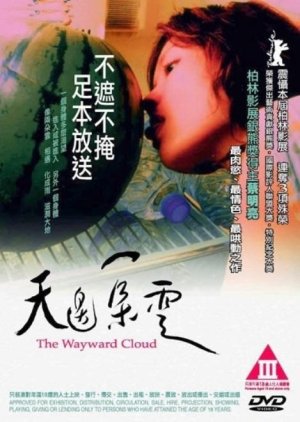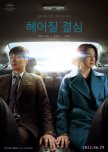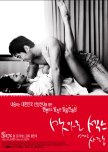
The ancient tongues have claimed that silence is just another form of violence. This must have been true with this film. The Wayward Cloud is almost free with dialogues in which most of it only comes from the occasional Chinese musicals and background or surrounding noises. The two main characters haven't really spoken words to each other. Though, despite the quietness of their words or famished communication, their innermost selves are violent with hunger and desire. They quench their thirst for water with (kinky) watermelons, just like how society quenches their thirst for connection and intimacy with pornography.
I guess, one of the biggest lies the society has succumbed to was believing that pleasure completely equates to joy or happiness. But how can you find an eternity in the temporary? Thus, instead of dwelling in total paradise, it's just the zone of a wayward cloud: glimpses of occasional pleasures that come and go without one's integral control and sometimes even against their expected outcomes.
Do they desire each other or do they only desire something that will fill the lonely gaps in their souls? She realized she really never knew him at all. He could never realize whether he wanted her or not. He refused her advances because he cannot differentiate love and lust anymore. The only time he truly expressed his complete and questionable desire for her was during the filming of his work at that ending scene. His work has clouded his discernment for what is truly personal to him. Just like a cycle from condensation to precipitation to evaporation back to condensation and so on, their life has become the stability of a dull and bleak, yet, directionless routine instead of the stability of continuous elevation going far beyond the clouds.
The film was also, in a way, absurd. In spite of its apt and dismal void, I could not help but to express laughter almost at the entirety of the film. I guess, The Wayward Cloud is truly an absurd comedy as emphasized greatly by the characters' disposition at that final shot: their dazed confusion, the meaninglessness of it all, and their wrath for their own void and ignorance.
P. S. The film somewhat reminded me of Wong Kar-wai's Chungking Express. In spite of its occasional comedy, we cannot be oblivious to its yearning pineapples, the quirky girl and sad boi/f-boi desiring attention and connection, the apartments longing for their own warmer home. But, at least, the busy streets of Chungking Express give you permission to dream (♪♪♪Ca-li-for-nia Drea-min'♪♪♪).
P. P. S. This is my first Tsai Ming-liang film and I just learned that this shouldn't be the right order. Though, I don't think it would really matter that much.
Was this review helpful to you?









































